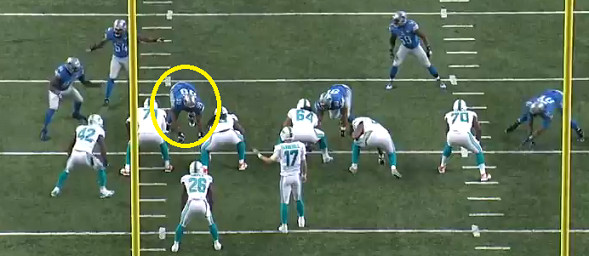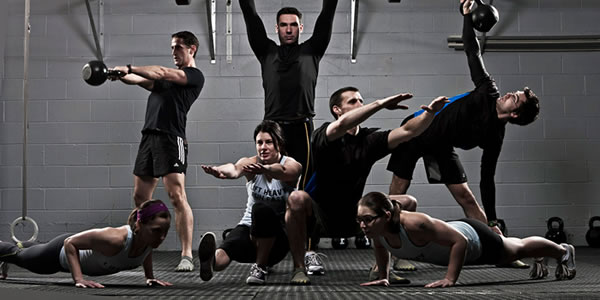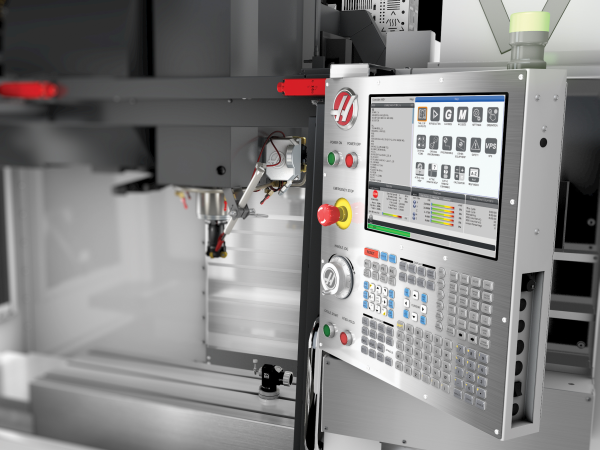
cross-train·ing
noun
noun: cross-training; noun: crosstraining
1. the action or practice of engaging in two or more sports or types of exercise in order to improve fitness or performance in one’s main sport.

Running, cycling, rowing, lifting weights, yoga (flexibility), nutrition and even ballet are all fitness tools employed by NFL athletes as they strive toward their goal: to be elite. Despite not having an obvious carry over to the game of football, each one of these disciplines provides a broad set of characteristics important to a particular aspect of the game. Acceleration, aerobic conditioning, agility, body composition, mobility, balance and more, all impact a player’s performance on any given Sunday.
Athletes and coaches everywhere implement cross-training methods that directly influence the overall performance, health, and safety of the athlete. While focusing on one specific training regimen, the muscle groups and joints that are primarily used can become overworked or even injured, completely derailing the training. Broadening the training methods allows for increased work capacity by reducing the focus on one movement and finding other ways to achieve the same goal. Perhaps most importantly, non-strenuous methods such as yoga (or other mobility/stretching exercises) and having appropriate nutrition further diversify and strengthen the athlete’s routine. Stretching, good joint mobility, vitamins, and minerals, while completely unrelated to the physical act of ‘blitzing the A-gap”, all provide a strong foundation of support for strenuous physical training and ensure a well-balanced, healthy athlete. So, what if you’re not an NFL athlete, or training for a marathon, or anything even close?

When I look at our day-to-day lives, I see the principles of cross-training everywhere. Every day, most of us spend time multitasking a vast number of unrelated tasks. Driving a car takes one set of skills and training, cooking dinner takes a completely different set of skills and training, managing finances yet another, and let’s hope that we aren’t called into an emergency plumbing or mechanic situation (Thank you YouTube!) or are volunteered into a home-DIY project by a passionate (if misguided) spouse (Thank you again YouTube, but I still have no idea how to create a dining set out of pallets and driftwood).
These diverse skills provide us a well-rounded perspective on our day-to-day lives. We are constantly afforded the opportunity to see situations in a new light and solve problems or undertake tasks with a variety of methods to choose from. Each experience, good or bad, strengthens our understanding and knowledge, providing useful information and a frame of reference for future tasks that may be undertaken.
Cross-training, otherwise known as ‘multi-skilling’, in the workplace is just as important. Think about your company’s infrastructure. How much do you really know about other departments, the procedures they follow, the tasks faced, and the difficult challenges that must be overcome? You may know how their work (or lack of it) directly affects your department, but are you aware of how your responsibilities interact with theirs? What if a situation you’re facing could be solved using a slightly different perspective or an ineffective bottleneck that’s been causing significant downtime eliminated with broader situational awareness? The benefits from a greater understanding can be numerous.
At WENZEL, I frequently have the opportunity to interact with a large number of customer departments, as well as our own internal departments. Through project management responsibilities and managing the applications engineering group, I’m often exposed to everything from the purchasing of our equipment through its installation and, of course, any after-sales support. I get to live, first-hand, how important the ‘big-picture’ understanding of any given situation can be, but even then, there’s always room for improvement.

In industry, there has long been a trend of specialists focused solely on one area of expertise. While this specialization can be critical and some tasks are better performed by more than a generalist, what if the broader picture was more often considered? There will always be a need for experts, but I believe we are beginning to see trends where more and more employees are capable of performing or at least have greater understanding, across multiple departments. Think about how your quality staff could benefit if they have a greater understanding of machining practices and visa-versa. Knowing more details about the day-to-day work of their staff can help department and program managers be more efficient when scheduling resources. Do the design engineers fully understand production methods for the parts they’re required to imagine? The possibilities to apply the principles of cross-training are endless.
At WENZEL we are committed to finding new ways to improve our customer experience and provide better services and benefits. Cross-training allows us many potential ways to achieve this. We are also here to support your own multi-skill requirements. Certifying your machinists in AUKOM or sending a program manager to an OpenDMIS class are just some of the ways we can help grow your capabilities.
Find out more, share your feedback, ask a question or let us know how cross-training could positively impact you. Please feel free to contact me directly
Stuart Nichols
Applications Manager
WENZEL America
